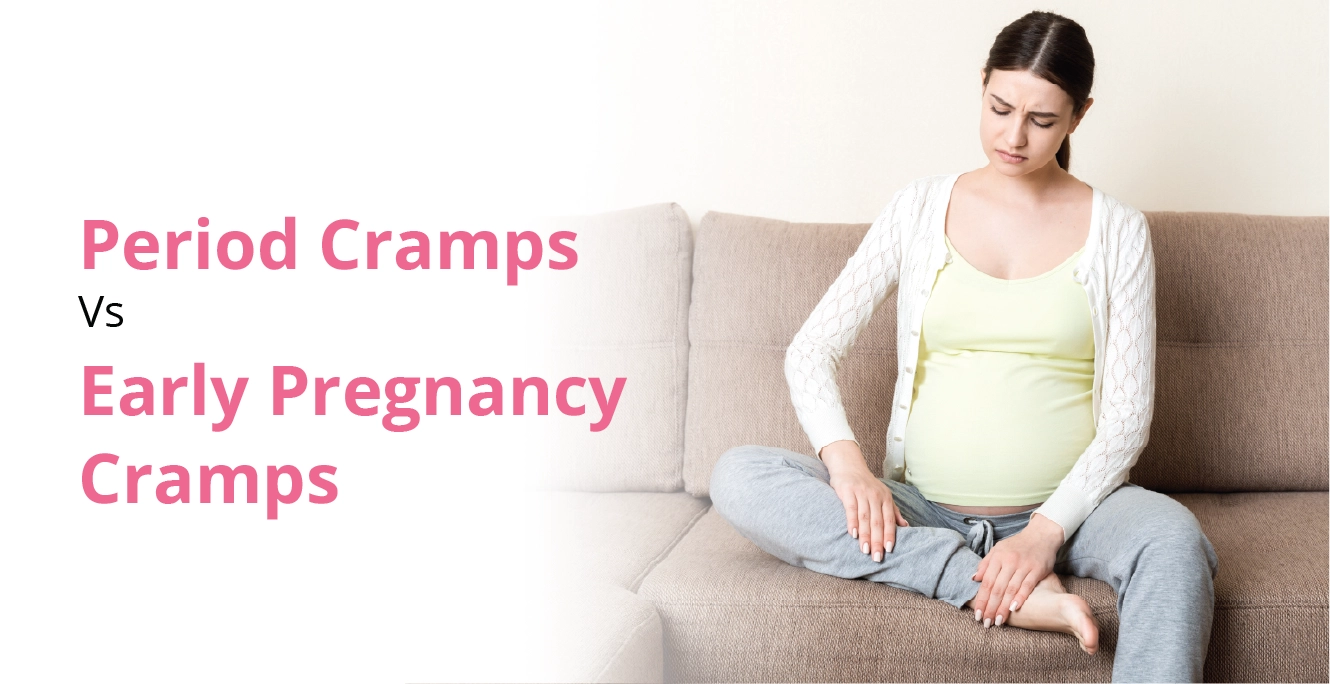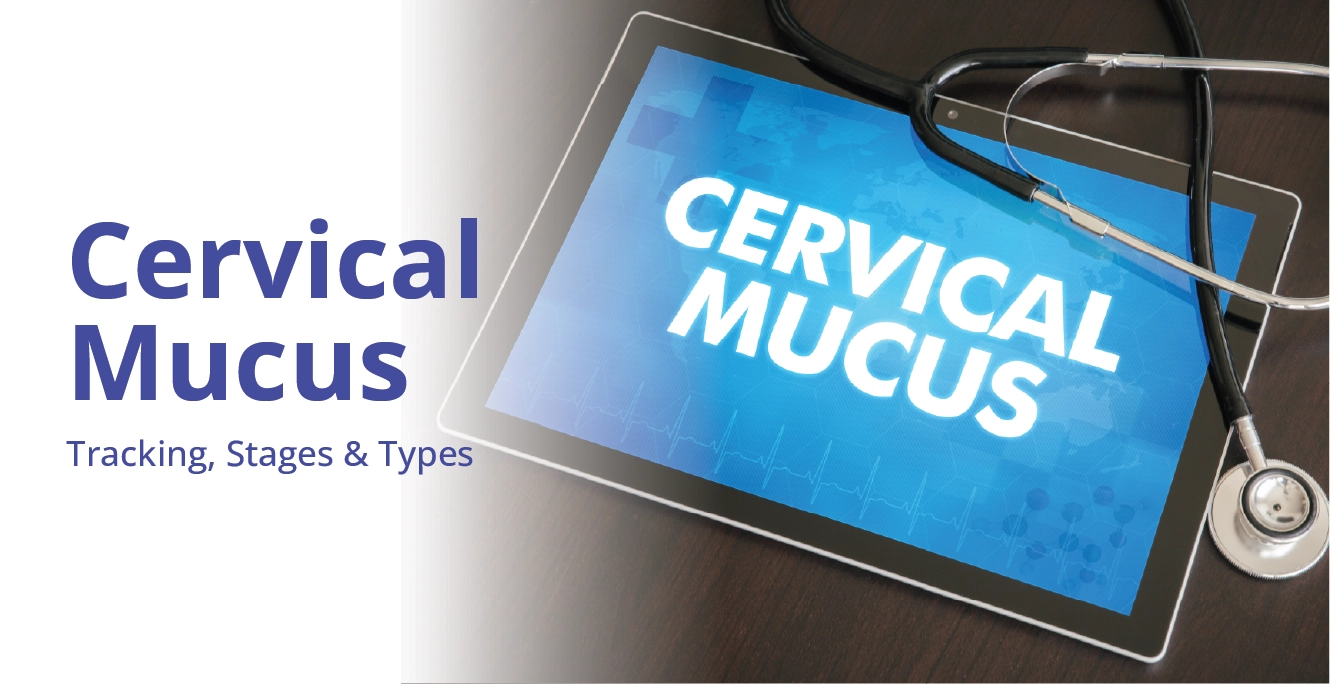
Irregular periods: Causes, Complications, and Treatment

Table of Contents
A female body prepares itself for pregnancy every month. During this time, one of your ovaries passes an egg to the fallopian tube, where it awaits the event of fertilisation with healthy sperm.
However, when that doesn’t happen, the uterus lining sheds. This is called menstruation or periods, and the process repeats every month, typically every 28 days.
However, many women experience irregular periods which in most cases isn’t indicative of a serious problem. It is important to understand what’s causing it and when to seek medical attention.
This article explains everything you need to know about irregular periods.
What are Irregular Periods?
If the gap between your monthly menstrual flow keeps changing, you might have irregular periods. While it’s normal for periods to occur a little early or late, certain signs indicate when it’s important to consult a gynaecologist.
Those signs are:
- You are below the age of 45, and your periods have become irregular all of a sudden
- The gap between your menstrual cycles is often less than 21 days or more than 35 days
- Excessive bleeding during menstruation
- Periods that last more than seven days
- You are unable to get pregnant due to irregular periods
By consulting a gynaecologist, you will also find out the cause of your irregular periods. Some of the common causes are discussed next.
Causes of Irregular Periods
Numerous reasons for irregular periods are there, including:
- Natural hormonal changes
- Birth control
- Underlying health conditions
Let’s understand them one by one.
1. Natural Hormonal Shifts
Irregular periods can occur due to natural hormonal changes. The main hormones that regulate your menstrual cycle are follicle-stimulating hormone (FSH), progesterone, and estrogen.
Any disruption in the usual rise and fall of these hormones can lead to irregular periods.
Factors that may alter the hormone levels are:
- Stress
- Extreme weight gain or weight loss
- Early pregnancy: a simple pregnancy test will confirm it
- Puberty
- Excessive exercise
It is common and natural to have irregular periods during puberty when the body undergoes many changes. During those years, the periods tend to be longer and irregular. It takes several years before they become shorter and regular.
Apart from that, you can also have menstrual irregularity after childbirth, as it takes some time for your hormones to return to normal. Breastfeeding, in particular, is associated with suppressed ovulation.
When your periods stop because of frequent breastfeeding, it’s called lactational amenorrhea. It usually lasts three to six months or longer. Another natural cause of irregular periods is perimenopause.
In most women, perimenopause lasts four to seven years before they hit menopause, i.e., complete cessation of their menstrual cycle. During this phase, the estrogen and progesterone level continues to fall.
2. Birth Control
One of the causes of irregular periods is oral contraceptives. They prevent pregnancy by reducing or stopping ovulation. You won’t have a true period if you are using birth control. In fact, you might not have a period at all.
While on birth control, you can experience withdrawal bleeds. However, this should not be mistaken for menstruation.
A drop in your hormone levels triggers it, and when that happens, some mucus and blood from your uterus lining are shed through the vagina.
Other forms of birth control can also lead to withdrawal bleeds, including intrauterine contraceptive devices (IUD), vaginal rings, and birth control patches.
The withdrawal bleeds usually last a few days or a few weeks. It differs for every woman. Over time, it becomes more regular or stops entirely.
Similarly, you can have irregular periods after stopping birth control. Typically, women experience withdrawal bleeds for two to four weeks before resuming menstruation.
However, it may take three to four months before they become regular.
It’s important to note that if you had an irregular pattern before using oral contraceptives, it’s normal for you to return to an irregular pattern again after stopping the usage.
3. Underlying Health Conditions
Sometimes, irregular periods are indicative of an underlying health condition, such as:
- Polycystic ovary syndrome (PCOS): The formation of fluid-filled sacs in the ovaries causes this chronic condition, and irregular periods are one of the symptoms
- Eating disorders: Certain eating disorders like binge eating, anorexia, and bulimia nervosa can lead to irregular or absent periods
- Thyroid disease: Both hyperthyroidism (excessive thyroid hormone) and hypothyroidism (insufficient thyroid hormone) are associated with irregular periods; it can also cause the flow to be too light or heavy
- Premature ovarian failure (POF): When ovaries stop releasing eggs before age 40, it’s likely due to premature ovarian failure; it causes irregular periods or premature menopause in women
- Hyperprolactinemia: The excessive level of prolactin protein is known as hyperprolactinemia, which is one of the reasons for irregular periods
Other conditions such as type 1 diabetes and congenital adrenal hyperplasia (disorders of the adrenal gland) can also cause menstrual irregularity.
Can you Calculate Ovulation with an Irregular Period?
Tracking ovulation with an irregular period can be challenging. However, with the help and advancement of modern medicine, you can track ovulation with an irregular period. There are multiple ovulation predictor kits and fertility monitor apps that can help you achieve results. Though, tracking ovulation needs patience, consistency, and testing from month to month without any delay. If you are still facing issues, consult a fertility specialist for expert advice.
Irregular periods may occur while breast-feeding a newborn
It is common to have irregular periods while breastfeeding. It is also stated that almost every nursing mother doesn’t experience menstruation for at least six months after delivery. Missing menstruation for multiple months while breastfeeding is also known as lactational amenorrhea. It is a result of the prolactin hormone, which stimulates milk production and stops you from ovulating at the same time.
Complications
Irregular periods can lead to other complications, such as:
- Iron deficiency: Frequent or heavy periods may cause you to develop iron deficiency.
- Infertility: Conditions such as PCOS and POF are major reasons for infertility.
- Osteoporosis: Reduced estrogen in your body contributes to osteoporosis (brittle or weak bones).
- Cardiovascular diseases: Lack of estrogen increases the risk of cardiac diseases.
All of these conditions require medical attention as well.
Irregular Periods Treatment
Most natural causes of menstrual irregularity, such as perimenopause and childbirth, don’t require any treatment. Irregularity due to birth control pills, patches, or IUDs also doesn’t need medical attention.
However, if your irregular periods have been persistent and you are below the age of 40, it’s wise to see a doctor who will determine the underlying problem.
Your treatment options may include:
- Hormone therapy: This is typically recommended by doctors to manage PCOS symptoms
- Nutritional therapy: A dietician will advise a suitable nutritional therapy if you are living with an eating disorder that causes irregularity
- Mental health support: Since stress, eating disorders, depression, and anxiety are linked with irregular periods, you may require psychological support
- In vitro fertilsation (IVF): If irregular periods are causing infertility and you’ve been trying for a while, IVF is an option worth considering; doctors use this technology to artificially extract your egg and fertilize it with your partner’s or donor’s sperm
Certain lifestyle changes and home remedies can help you get periods regularly, including:
- Maintaining a healthy weight
- Exercising
- Adding cinnamon and ginger to your diet
- Taking adequate Vitamin D
Relationship Between Irregular Periods and Pregnancy
Irregular periods can pose challenges for women trying to conceive, but they don’t necessarily mean infertility. Here’s how irregular cycles can affect pregnancy:
- Difficulty Tracking Ovulation: Irregular periods make it harder to predict ovulation, the time when an egg is released and conception is most likely to occur. Without a clear ovulation pattern, timing intercourse for conception can be challenging.
- Hormonal Imbalances: Conditions like PCOS that cause irregular periods can also affect ovulation and egg quality, making conception more difficult.
- Endometrial Health:Irregular cycles can sometimes indicate issues with the endometrium, the lining of the uterus, which can impact embryo implantation and early pregnancy.
Tips to Manage Irregular Periods and Enhance Fertility

While irregular periods can complicate the conception process, there are tips to manage them and improve your chances of getting pregnant:
- Track Your Cycle: Use an ovulation calculator, basal body temperature charts, or fertility apps to track your cycle and identify patterns. This can help pinpoint your most fertile days.
- Healthy Lifestyle:Maintaining a balanced diet, regular exercise, and a healthy weight can help regulate your menstrual cycle. Avoid excessive exercise and aim for a moderate, consistent routine.
- Manage Stress: Practice stress-reducing techniques such as yoga, meditation, or mindfulness to help balance your hormones and regulate your cycle.
- Medical Treatment: Consult with a healthcare provider to address underlying conditions like PCOS or thyroid disorders. Medications or treatments may be recommended to help regulate your cycle.
- Fertility Treatments:If natural methods are not effective, fertility treatments such as Clomid (a medication that induces ovulation) or assisted reproductive technologies like IUI or IVF may be considered.
When to Consult a Specialist?
If you have irregular periods and are trying to conceive, it’s important to seek medical advice promptly. A specialist can conduct tests to identify underlying causes and recommend appropriate treatments. You should consider consulting a doctor if:
- You haven’t had a period for three months or more (amenorrhea)
- Your cycles are consistently shorter than 21 days or longer than 35 days
- You experience very heavy or painful periods
- You have been trying to conceive for a year (or six months if you are over 35) without success
Conclusion
Irregular periods are menstruation flows that are unpredictable and change in length and/or frequency. Working with your doctor to determine the cause of irregular periods is important.
Some women have them because of a condition called Polycystic Ovarian Syndrome (PCOS) which can cause infertility. Menstrual irregularity is not a problem for everyone, but for some women, it is a serious issue that can affect their quality of life.
FAQs
1. How do irregular periods affect pregnancy?
If an underlying cause of menstrual irregularity is a condition like POF or PCOS, it can lead to infertility. However, irregular periods don’t affect pregnancy in most women.
2. How do you fix irregular periods?
Depending on the cause, a doctor will recommend suitable treatment options like hormone therapy, nutritional therapy, or fertility treatment like IVF.
3. Are irregular periods normal?
Irregular periods are normal and quite common. You can consult a gynaecologist for further diagnosis in case the irregularity affects your health negatively.
Our Fertility Specialists
Related Blogs
To know more
Birla Fertility & IVF aims at transforming the future of fertility globally, through outstanding clinical outcomes, research, innovation and compassionate care.
Had an IVF Failure?
Talk to our fertility experts

 Our Centers
Our Centers
















